Gas vs Electric Water Heater: Ultimate Comparison
When choosing between a gas or electric water heater, it's important to consider several factors that can impact performance, energy efficiency, and cost. It's important to assess your specific needs, consider energy efficiency ratings, and evaluate the availability and cost of gas and electricity in your area when making a decision. Consulting with a professional plumber or contractor can provide valuable guidance based on your home's requirements and local regulations.

How do electric water heaters work?
An electric water heater utilizes heating elements submerged in a storage tank to heat the water. These heating elements are powered by the electrical system of your home. The thermostat on the unit monitors the water temperature and turns off the heating elements once the desired temperature is reached. This ensures a continuous supply of hot water for your needs.

Benefits of electric water heaters
Electric water heaters offer a host of benefits over traditional gas-powered heaters:

Safety: Electric water heaters eliminate the need for gas lines, reducing the risk of gas leaks and carbon monoxide poisoning.
Installation flexibility: Electric water heaters can be installed in various locations without the need for venting, allowing for more flexibility in placement.
Efficiency: Electric water heaters have high energy efficiency, converting most of the electricity into heat and potentially resulting in long-term energy cost savings.
Lower upfront costs: Electric water heaters generally have lower upfront costs compared to gas-powered models, making them more affordable for initial purchase and installation.
Environmentally friendly: Electric water heaters produce zero greenhouse gas emissions during operation, making them a greener option for environmentally conscious homeowners.
Durability: Electric water heaters often have a longer lifespan compared to gas-powered heaters, providing reliable hot water for an extended period.
Disadvantages of electric water heaters
Despite their many advantages, it's important to consider some drawbacks of electric water heaters as well.
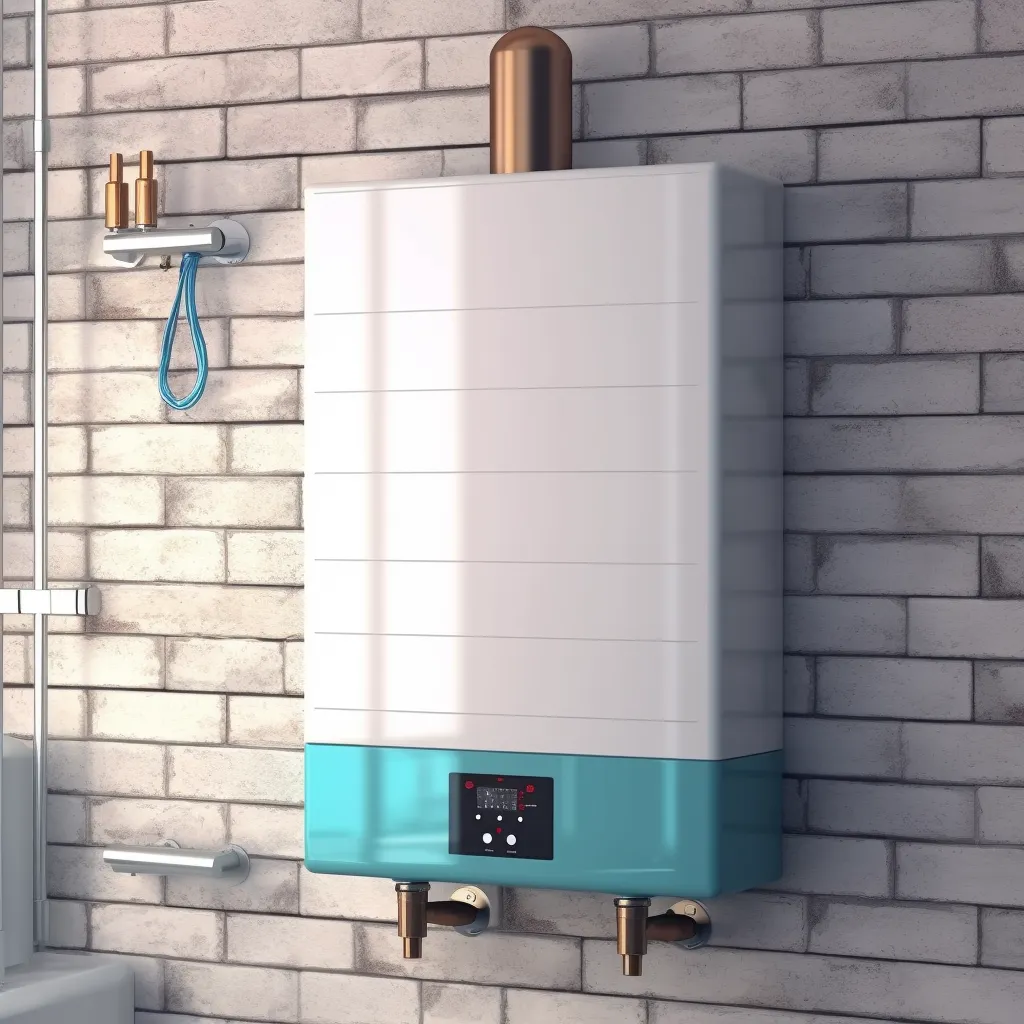
Slower recovery: Electric water heaters typically have a slower rate of water heating compared to gas models, which may result in longer wait times for hot water, especially during high-demand periods.
Energy costs: While electric water heaters are more energy-efficient, the cost of electricity can still be higher compared to other fuel sources. It's important to consider the ongoing energy costs when evaluating the overall expenses.
Shorter lifespan: Electric water heaters generally have a shorter lifespan compared to gas-powered models, which may require more frequent replacements and increase long-term costs.
Power outage dependency: Electric water heaters rely on a continuous supply of electricity to function. During power outages, there may be no hot water available until the power is restored, which can be inconvenient in certain situations.

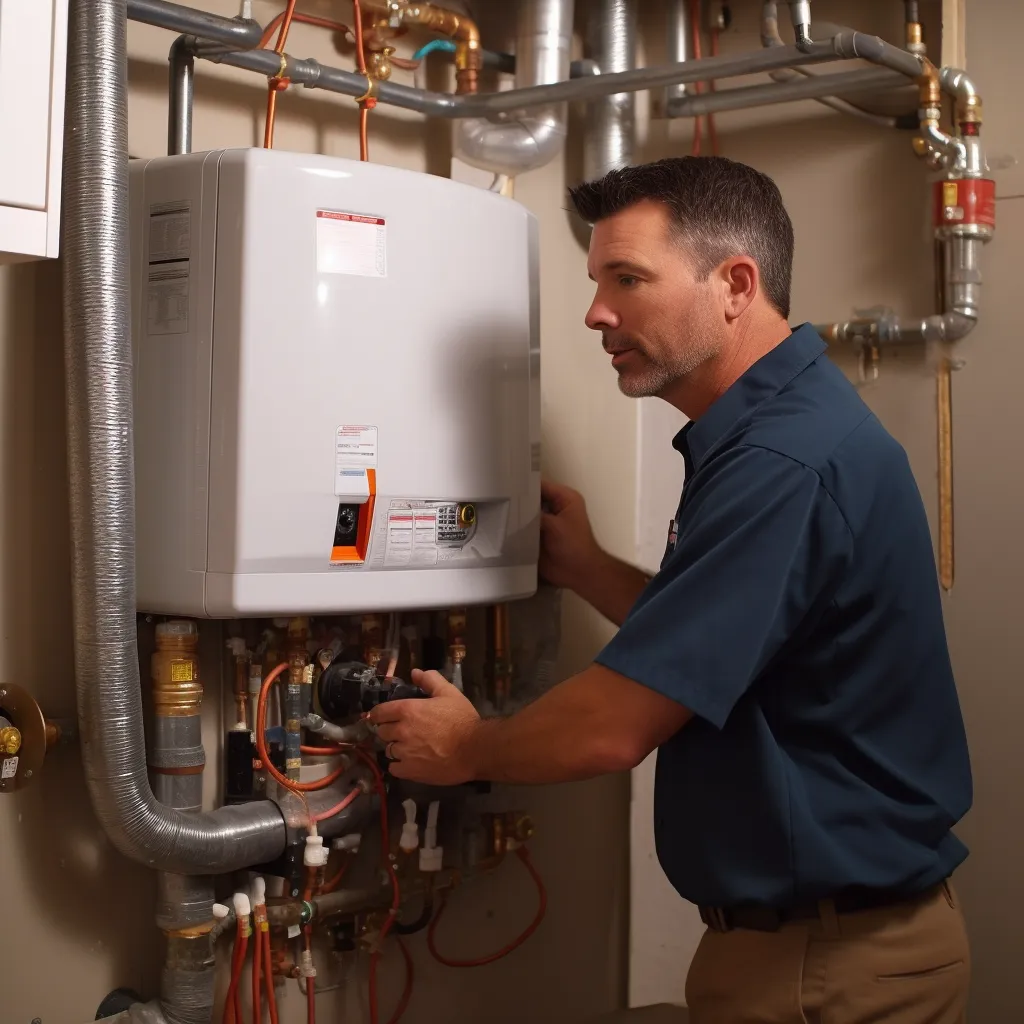
How do gas water heaters work?
Gas water heaters function by igniting a gas burner located at the base of a large tank. The burner heats the water stored in the tank, which can then be accessed through a tap when needed. As hot water is used, cold water enters the tank to maintain a constant supply. This continuous cycle of heating and replenishment ensures a consistent flow of hot water for various household needs.
Pros of gas water heaters
Gas water heaters are a popular choice for these benefits:

Cost-effectiveness: Gas water heaters are generally more cost-effective in the long run due to lower utility bills compared to electric units. Gas is often a more affordable fuel source, leading to potential cost savings over time.
Faster hot water delivery: Gas water heaters heat water more quickly than electric models, providing hot water faster when you turn on the tap. This can be beneficial for households that require immediate access to hot water, especially during peak usage times.
Longer lifespan: Gas water heaters tend to have a longer lifespan compared to electric units. This means you may not need to replace them as frequently, saving you money on replacement costs. With proper maintenance, a gas water heater can provide reliable hot water for many years.
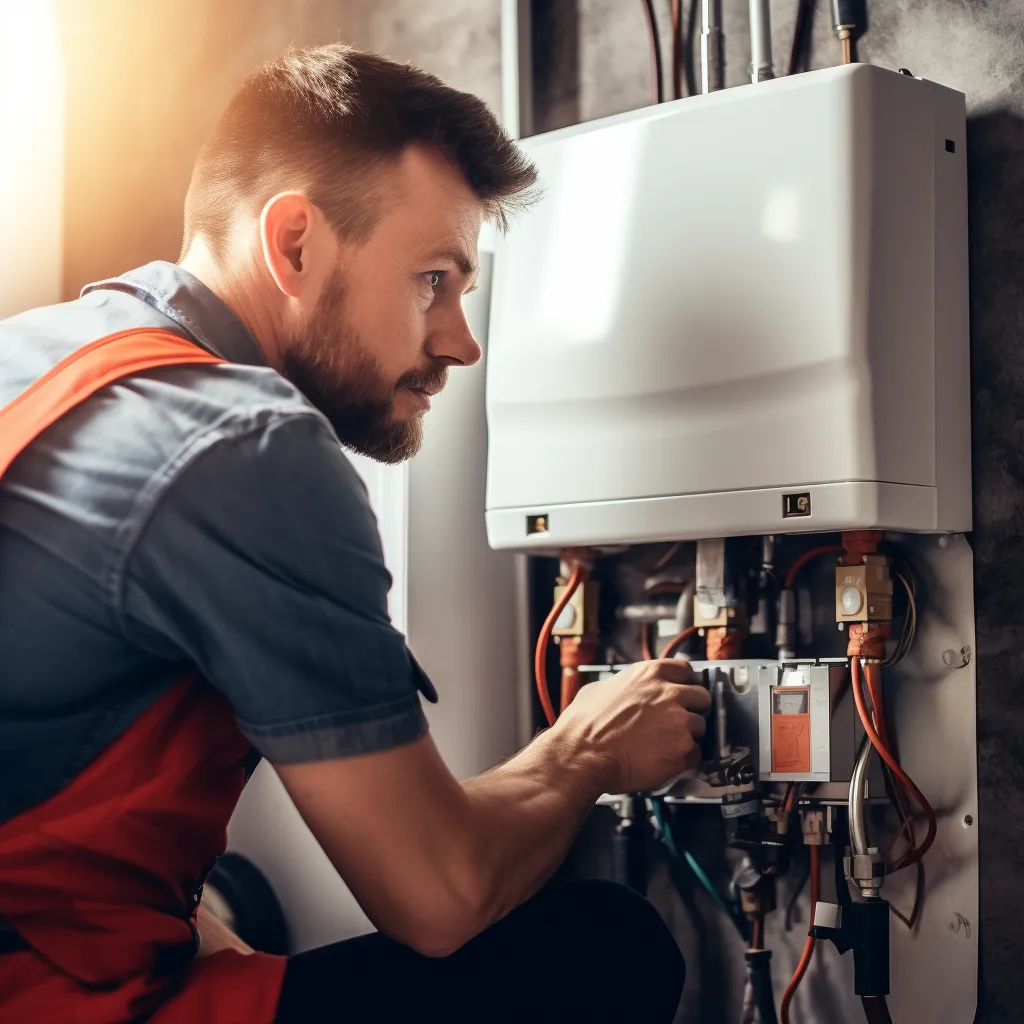
Cons of gas water heaters
Despite their many advantages, gas water heaters also have some potential downsides:

Environmental impact: Gas water heaters contribute to air pollution as a result of burning natural gas, a fossil fuel. This combustion process releases pollutants into the atmosphere, adding to overall environmental concerns.
Risk of explosion: Incorrect installation or improper usage of gas water heaters can potentially lead to explosions. It is crucial to strictly follow safety guidelines and have a professional handle the installation to ensure proper operation and minimize the risk of accidents.
Higher maintenance costs: Gas water heaters generally require more maintenance compared to electric units. This may involve regular inspections, cleaning, and potential repairs. These additional maintenance requirements can lead to higher ongoing costs.
Longer installation time: Installing a gas water heater typically takes more time compared to electric units. It involves setting up gas lines, venting systems, and ensuring proper connections. Allowing for several hours of installation time is important to ensure a satisfactory and safe setup.
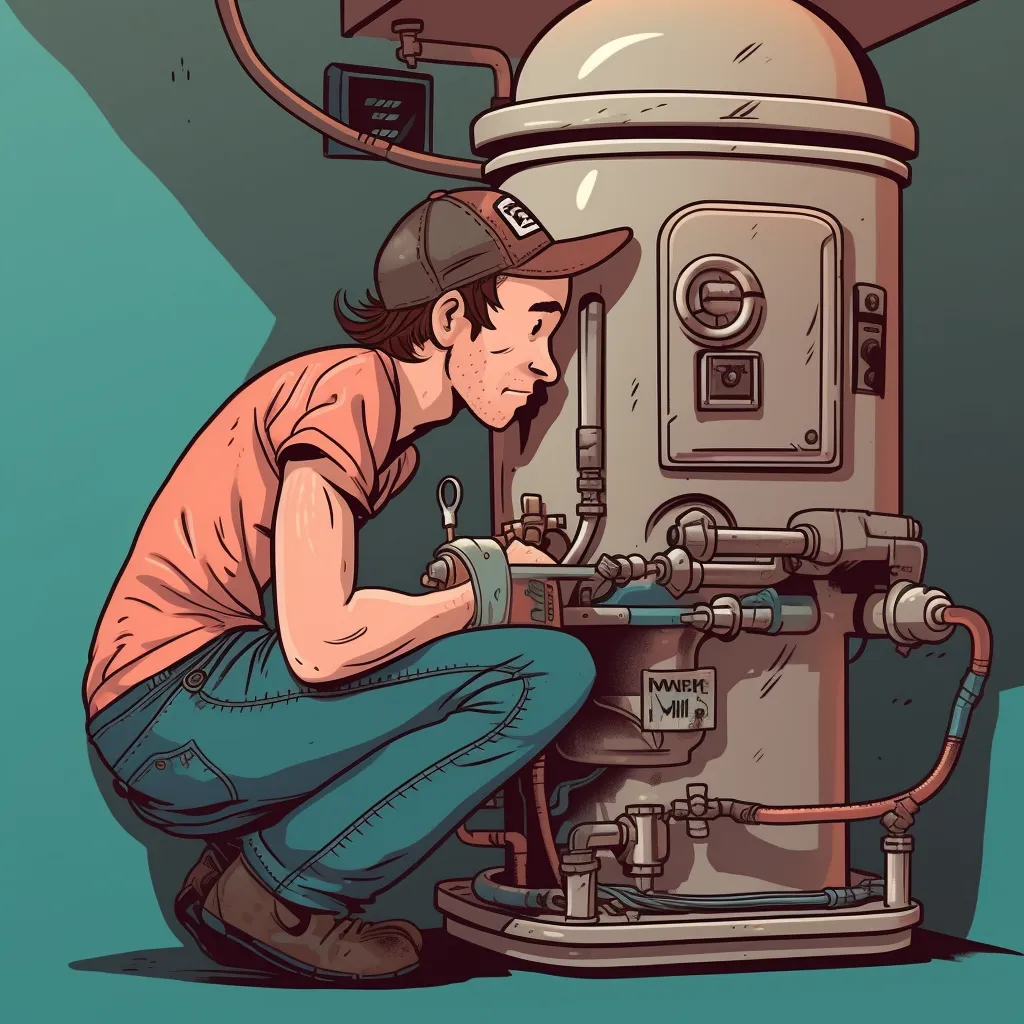
Are electric water heaters energy-efficient?
The efficiency of electric water heaters can vary depending on factors such as the unit size, insulation quality, and operating temperature. While gas-powered water heaters are often recognized for their higher efficiency, it is worth noting that electric models have been making advancements in energy efficiency ratings. These improvements indicate that electric water heaters are becoming more efficient and can provide cost-effective options for homeowners.
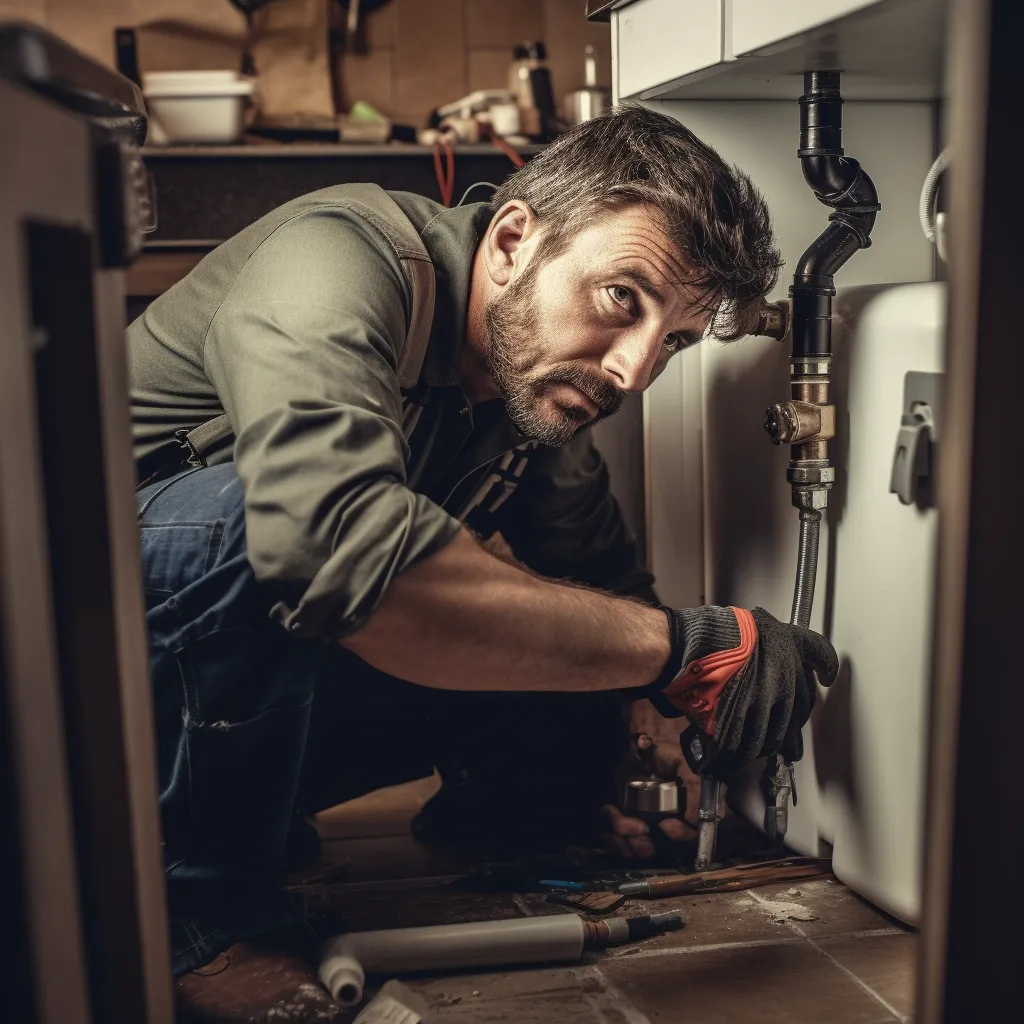
Are gas water heaters energy-efficient?
Gas-based water heaters are known for their cost-effectiveness and energy efficiency compared to electric models. These water heaters use natural gas combustion to heat water, which generally requires less energy than electric heaters. The efficiency rating of a gas water heater can be influenced by factors such as the unit's size, model, and regular maintenance practices. By choosing a gas water heater and implementing proper maintenance, homeowners can benefit from reduced energy consumption and lower utility bills.
What does it cost to buy and install electric water heaters?
Electric water heaters come in various sizes and configurations, which can affect their cost. On average, a 50-gallon electric water heater may range in price from $300 to $800. It's important to consider that installation costs are separate from the unit itself. The installation of an electric water heater generally incurs an additional expense of around $300 to $500, depending on factors such as the complexity of the installation and any necessary permits. It's recommended to consult with a professional to get an accurate estimate based on your specific requirements.


What does it cost to buy and install gas water heaters?
Gas water heaters come in various sizes, and their prices typically range from $500 to $1,500, with high-end models reaching up to $3,000. It's important to note that installation charges are separate and can vary based on factors such as location and plumbing requirements.
While the initial cost of a gas water heater may be higher compared to other options, it's essential to consider the long-term benefits and savings. Gas water heaters are known for their energy efficiency, which can result in lower utility bills over time. Additionally, they provide a reliable and continuous supply of hot water, making them ideal for households with high hot water demand. Consulting a professional can help determine the best gas water heater for your specific needs and provide an accurate cost estimate for installation.
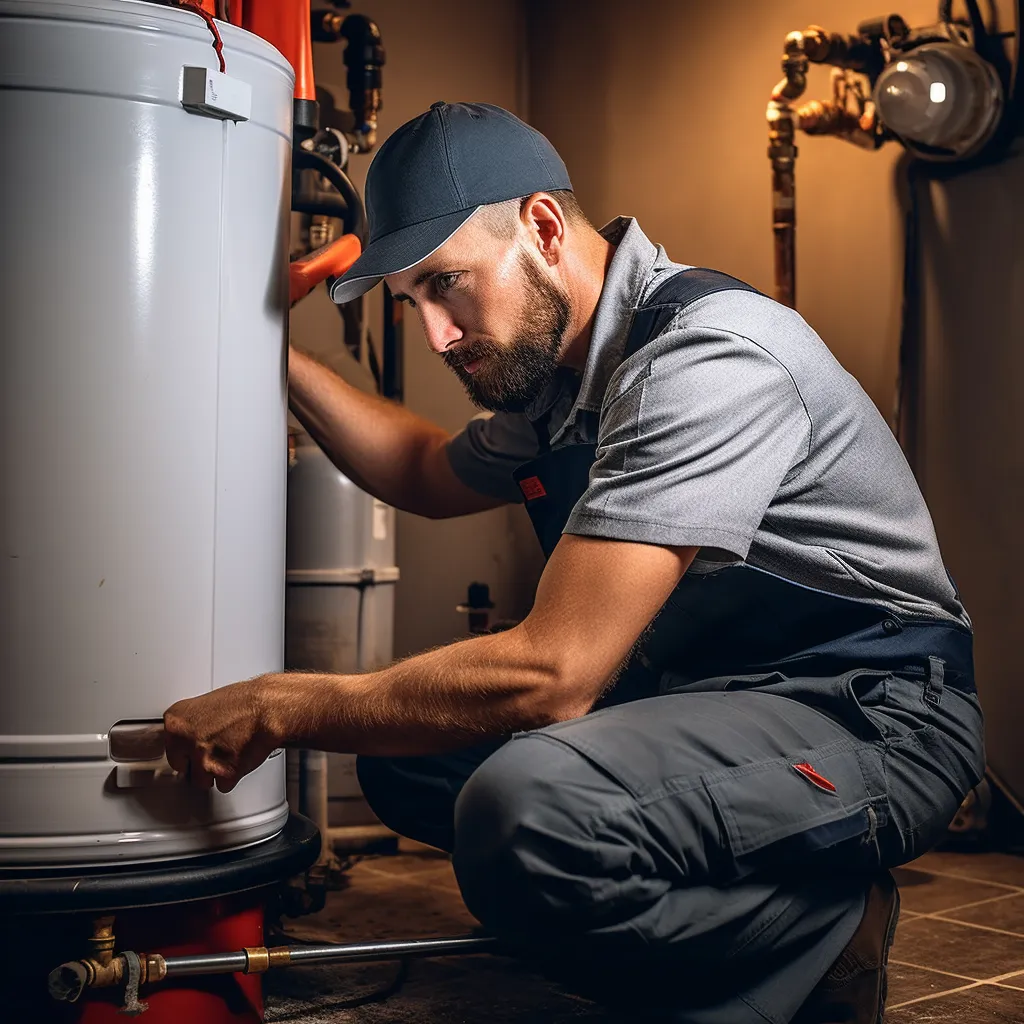
Maintenance needs of electric water heaters
Regular maintenance is essential for the proper functioning and safety of electric water heaters. Key maintenance tasks include checking the temperature and pressure relief valve to prevent overheating and potential accidents. Flushing the tank periodically, typically every six months to a year, removes sediment buildup and maintains optimal efficiency. It's important to inspect the heating elements for damage or mineral buildup and replace them as needed. Ensuring secure and undamaged electrical connections is crucial for safe operation. If you're uncertain about performing maintenance tasks, it's advisable to consult a licensed professional for assistance.

Maintenance needs of gas water heaters
Regular maintenance is crucial for the effective and safe operation of gas water heaters. It involves important tasks such as flushing the tank annually, inspecting the anode rod every few years, checking the burner and pilot assembly for debris or damage, testing the temperature and pressure relief valve annually, and checking for gas leaks. By diligently performing these maintenance tasks, you can ensure the efficient and safe functioning of your gas water heater. If you have any uncertainties or concerns, it is advisable to consult a licensed professional for assistance.
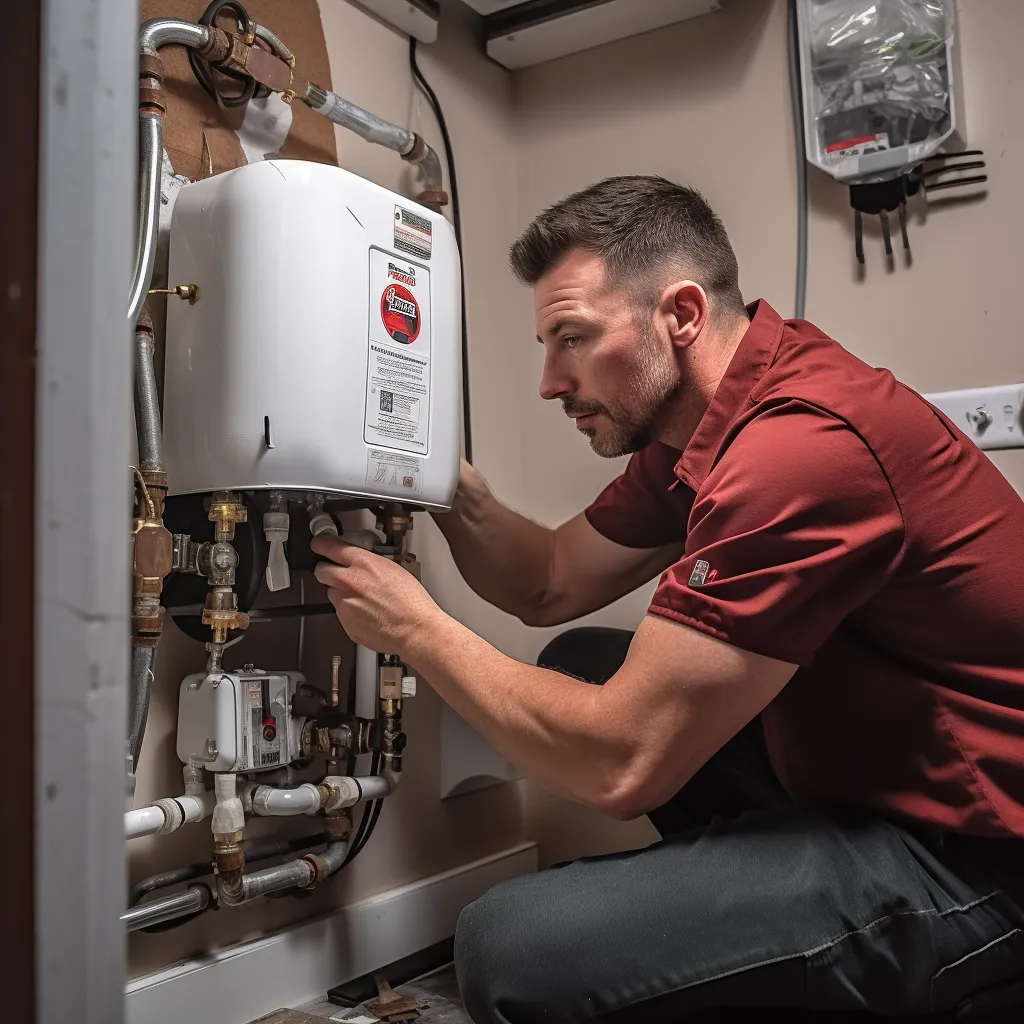

Safety considerations of electric water heaters
Ensuring safety is of utmost importance when utilizing an electric water heater. One primary concern is the potential risk of electrocution, which can arise from improper grounding or malfunctions. Additionally, the risk of fire hazards exists if the heater overheats or is situated near flammable substances. To minimize these risks, it is crucial to adhere to the manufacturer's guidelines and have a licensed professional handle the installation of the water heater. By diligently following these precautions, you can guarantee the safe and dependable operation of your electric water heater.
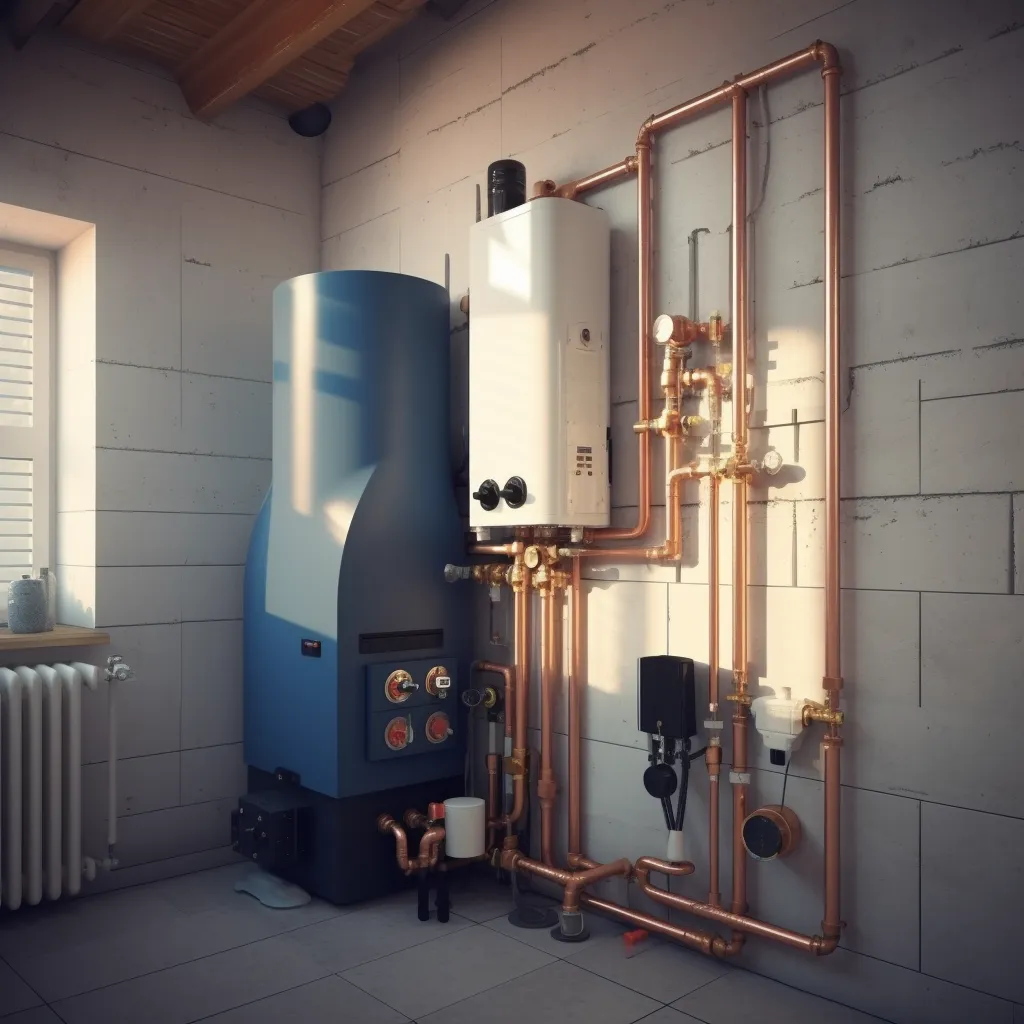
Safety considerations of gas water heaters
Prioritizing safety is paramount when utilizing gas water heaters. Implementing preventive measures such as installing a carbon monoxide detector in close proximity, conducting regular inspections and maintenance on the heater, and maintaining a clear area around the unit devoid of flammable materials are essential for creating a safe environment in your home. By adhering to these precautions, you can enhance the overall safety and well-being of your household.

How to choose between electric vs gas water heater
By taking these factors into consideration, you can make a well-informed decision regarding the water heater type that best suits your specific needs.
Consider the size of your home and the amount of hot water you use regularly to determine the appropriate capacity for your water heater.
Compare the initial costs of purchasing and installing electric and gas water heaters, taking into account long-term cost savings for gas heaters and lower upfront expenses for electric models.
Evaluate the energy efficiency of gas water heaters, which are generally more efficient and cost-effective to operate than electric models.
Take into account the maintenance requirements of each type, with electric water heaters typically needing less maintenance and gas heaters requiring regular inspections for safety and performance.
Consider the environmental impact of your choice, with electric water heaters producing fewer emissions and having a lower carbon footprint compared to gas water heaters.
When making a decision about your water heater, it's important to consider your personal preferences, lifestyle, and budget. Take into account factors such as energy efficiency, installation costs, and ongoing maintenance requirements. Additionally, consider the availability of fuel sources in your area and any specific environmental considerations.
Assess your hot water needs, considering factors like the size of your household and frequency of hot water usage. Evaluate the long-term cost savings associated with different types of water heaters. Consider the environmental impact of your choice and the availability of renewable energy options.
By carefully weighing these factors and considering your priorities, you can make an informed decision that ensures a reliable supply of hot water for your home while aligning with your budget and environmental goals.

Why you should hire a licensed professional for installation
When it comes to installing or replacing a water heater, it's important to prioritize safety and consider hiring a licensed professional. While some may be tempted to tackle the task themselves to save money, it can be risky and potentially hazardous.
Licensed professionals have the necessary knowledge, skills, and expertise to handle the installation or replacement of a water heater safely and effectively. They are familiar with building codes and regulations, ensuring that the installation meets the required standards. Moreover, professionals can provide valuable guidance on selecting the right size and type of water heater for your specific needs.
By entrusting the job to a licensed professional, you can have peace of mind knowing that safety measures will be followed and any potential issues will be addressed. They have the experience to handle any challenges that may arise during the installation process.
Your safety should always be the top priority when it comes to any home improvement project. Relying on a licensed professional for the installation or replacement of your water heater is the smart and responsible choice. It ensures that the task is completed correctly, minimizing the risk of accidents or damage.
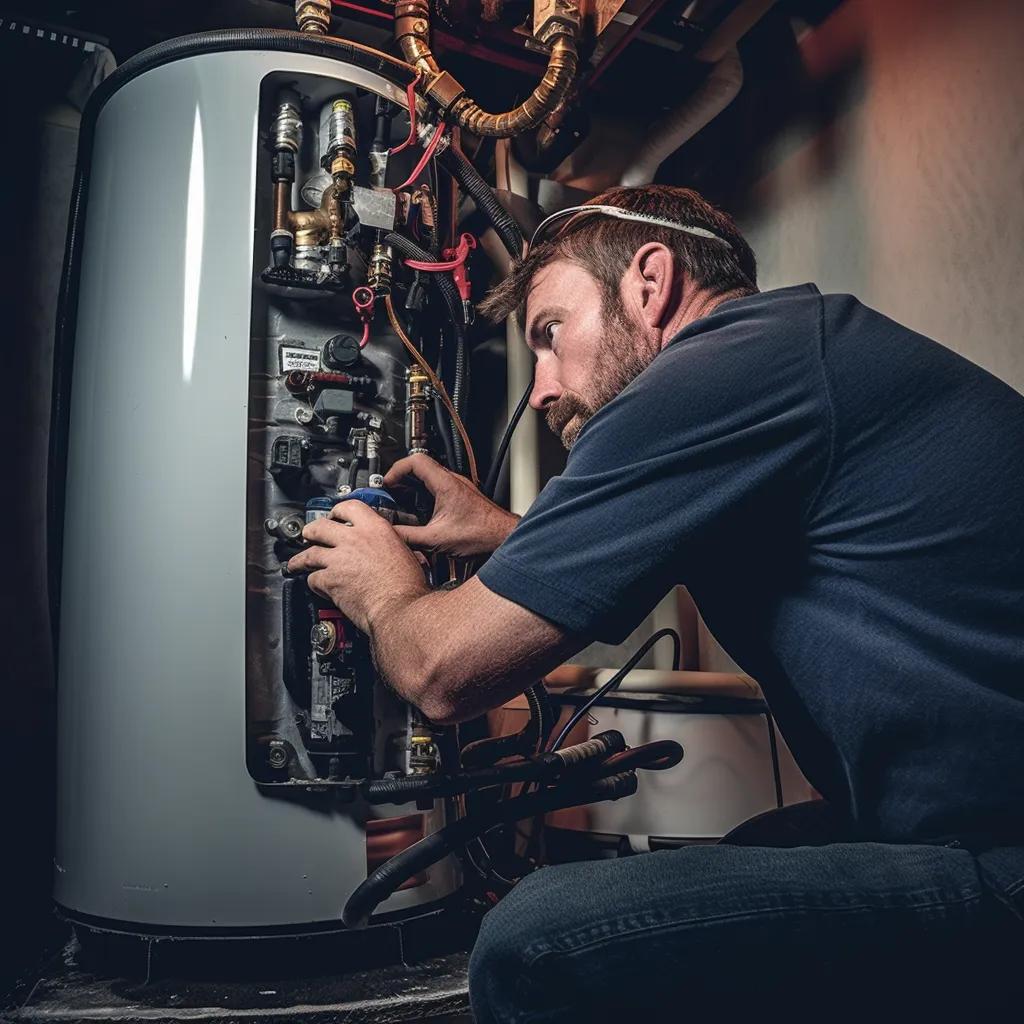
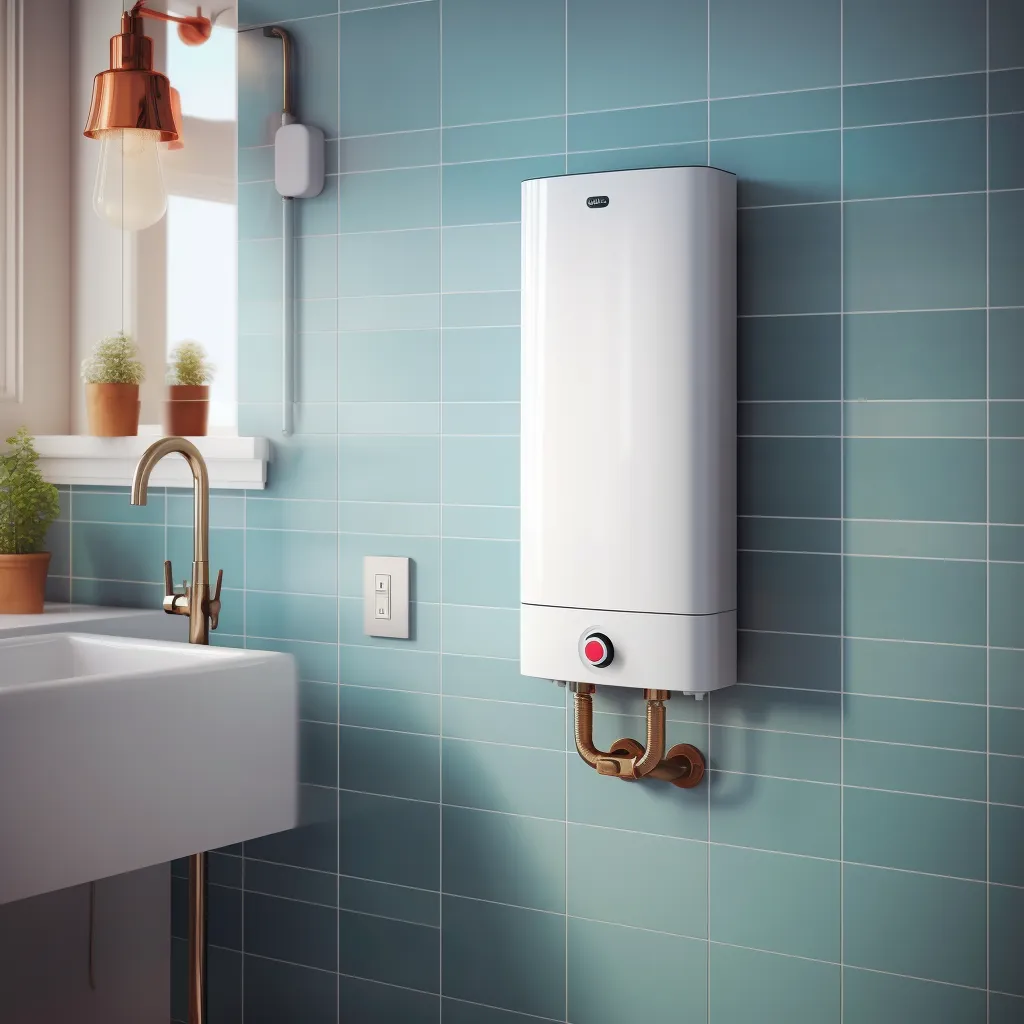
Be sure to do your research
When choosing a water heater, conduct thorough research and consider factors such as safety, installation requirements, and your specific needs. Hiring a licensed professional ensures a proper and safe installation. Their expertise will help you select the right water heater and ensure optimal performance.
Contact Us
GET IN FULL TOUCH
PHONE: (267) 715-3102
EMAIL:
tyler@waterheatersphiladelphia.com
Water Heaters Philadelphia
Philadelphia, PA 19147
